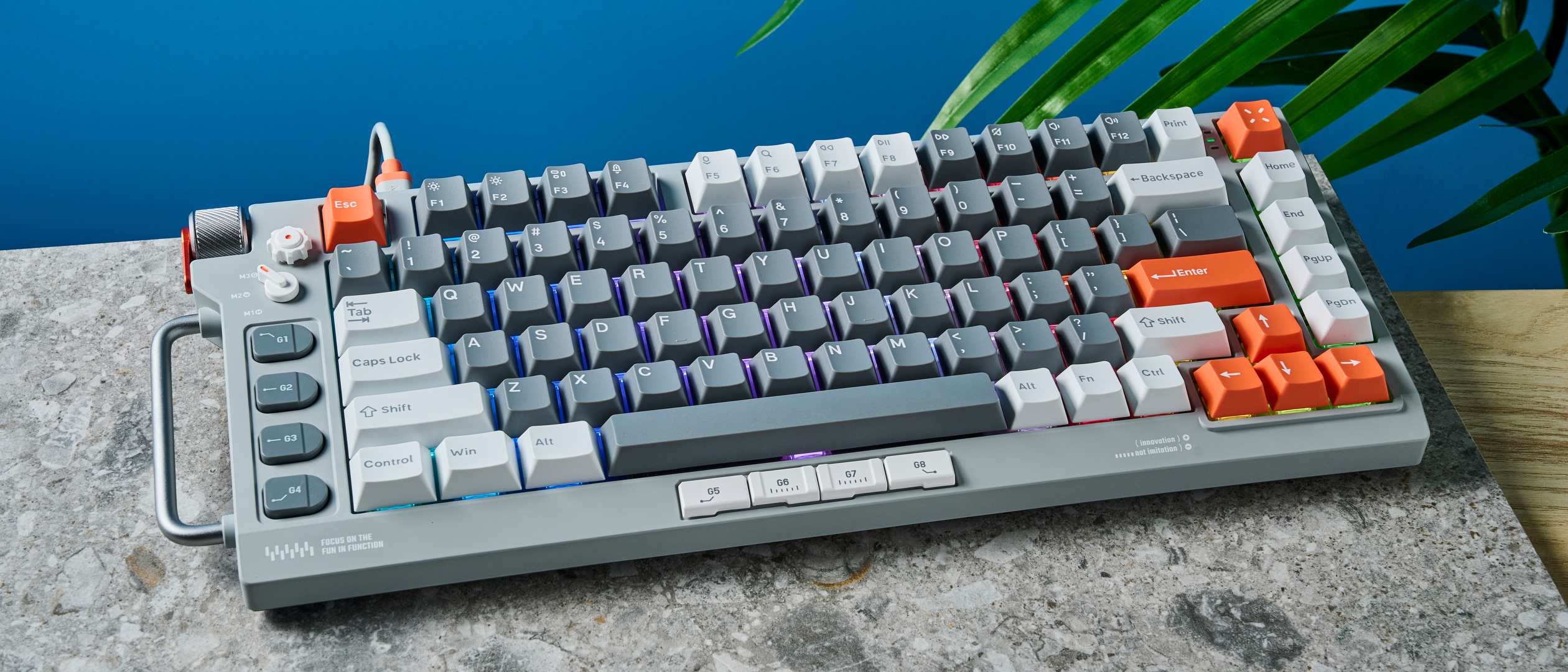Tom's Guide Verdict
The Field75 HE is NuPhy’s most gaming-oriented board to date. It packs adjustable Hall Effect switches with multiple actuation points, scalable polling up to 8K, solid companion software and assignable custom buttons for your most used functions or binds. It’s wired only though, and isn’t the best value for money compared Keychron’s current stock of HE boards. As with any magnetic board in 2024, your hot swap options are limited, too.
Pros
- +
8K polling
- +
Bindable shortcut buttons
- +
Customizable QMK firmware
- +
Hall Effect switches
- +
Also great for macOS users
Cons
- -
Limited switch choices for now
- -
Wired only
- -
Pricier than some rivals
Why you can trust Tom's Guide
The NuPhy Field75 HE is as fine a demonstration as the come that custom keyboards are advancing faster than ever. The waters, placid for so long, are getting choppy. And it’s all thanks to magnetic switches. Manufacturers typically known for their productivity boards — NuPhy, Keychron etc — have got their eager little mitts on the same Hall Effect switches used in today’s elite gaming keyboards, and are employing them just as effectively as the big boys over at Razer, Corsair and SteelSeries.
The result? The custom keyboard world is currently in the midst of an arms race, with manufacturers vying to produce Hall Effect keyboards that are as good for gaming as they are for productivity, if not better. The Field75 HE is NuPhy’s most gaming-focused Hall Effect board thanks to its high polling rates and range of secondary gaming features like bindable shortcut buttons, Cherry profile keycaps and customizable firmware.
So, is the Field75 HE good enough to be considered alongside the best gaming keyboards? Find out in my NuPhy Field75 HE review.
NuPhy Field75 HE review: Cheat Sheet
- What is it? A 75% custom gaming keyboard with Hall Effect switches
- Hall Effect? Yep, they’re magnetic, allowing adjustable actuation, among other awesome gaming features
- What else is good? Super high polling rates, QMK firmware, custom shortcut buttons and NuPhy’s typically prepossessing styling
- So what’s the catch? Similarly powerful rivals are wireless and cheaper, while switch choices are limited
- What does it cost? It starts at $169 from Amazon, or $149 from NuPhy
NuPhy Field75 HE review: Specs
| Price | Starts at $169 from Amazon, $149 from NuPhy |
| Switches | Gateron Magnetic White; Magnetic Jade |
| Layout | 75%, 83-key |
| Mount type | Top |
| Stabilizers | Plate-mounted, clip-in |
| Keycap material | Double-shot PBT |
| Case material | Plastic |
| OS' supported | Windows, macOS, Linux, iOS, iPadOS, Android |
| Customizable buttons | 8 |
| Connectivity | Wired only |
| Polling rate | 8,000Hz |
| Measurements | 14.66 x 5.62 x 1.59 inches |
| Weight | 1.66 lbs |
NuPhy Field75 HE review: The ups
Gateron magnetic switches, bags of gaming performance, NuPhy’s typically dashing looks, plus tons of customization. It’ll even work for productivity, too. There’s a hell of a lot to like.
Hall Effect switches
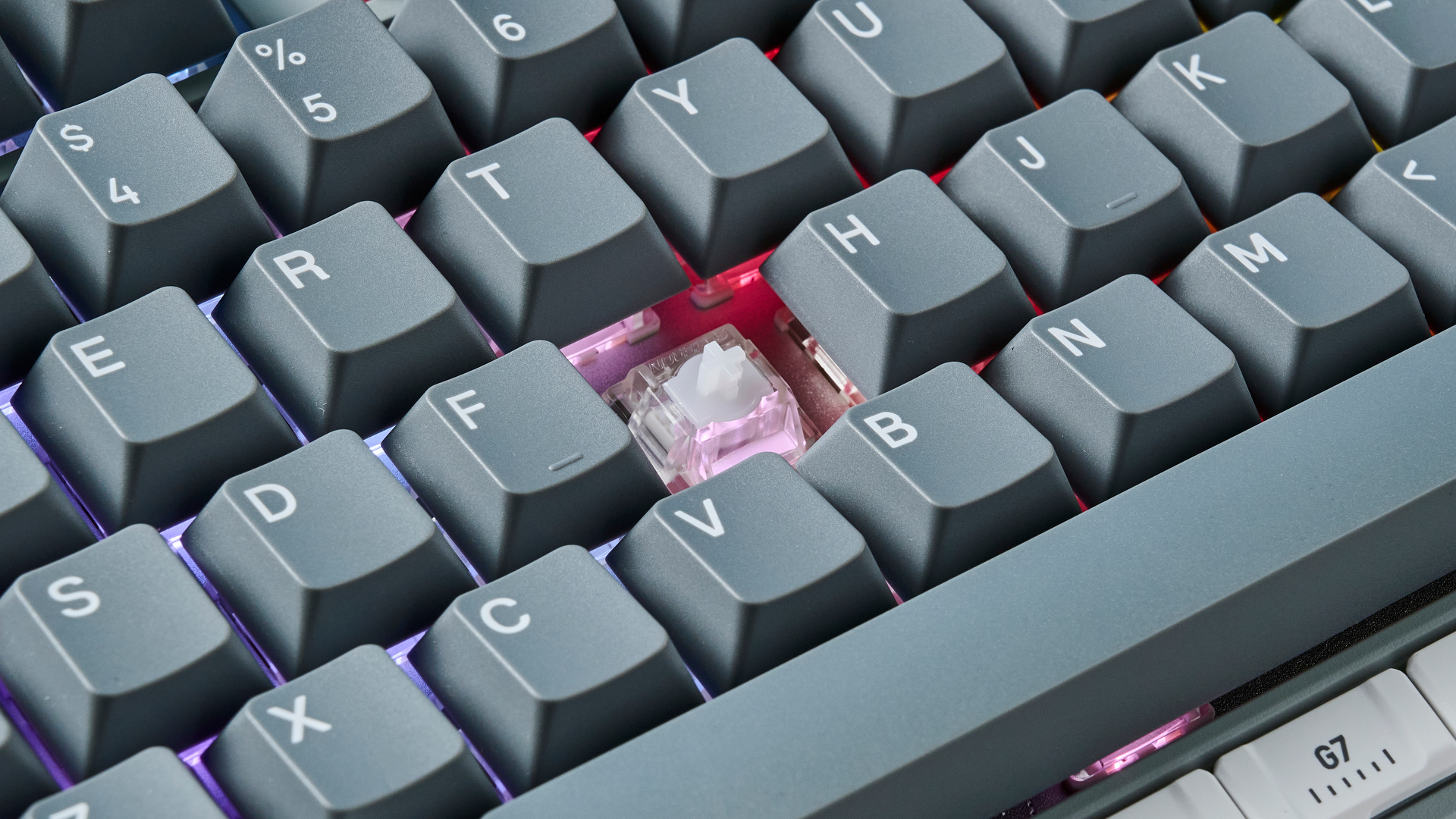
Hall Effect switches are magnetic switches, meaning they trigger an input (actuate) via an electromagnetic field instead of a physical mechanism. This makes them incredibly flexible because that actuation point is not locked to any single position in the keystroke. If you want snappier inputs for fast-paced gaming, you can decrease the distance you need to press the key before an input is registered, or vice versa.
The Field75 can be purchased with either Gateron Magnetic White switches (as you’d find in Wooting boards) or the popular Gateron Magnetic Jade switches (which cost more). I tested the board with the white switches.
Powerful gaming features
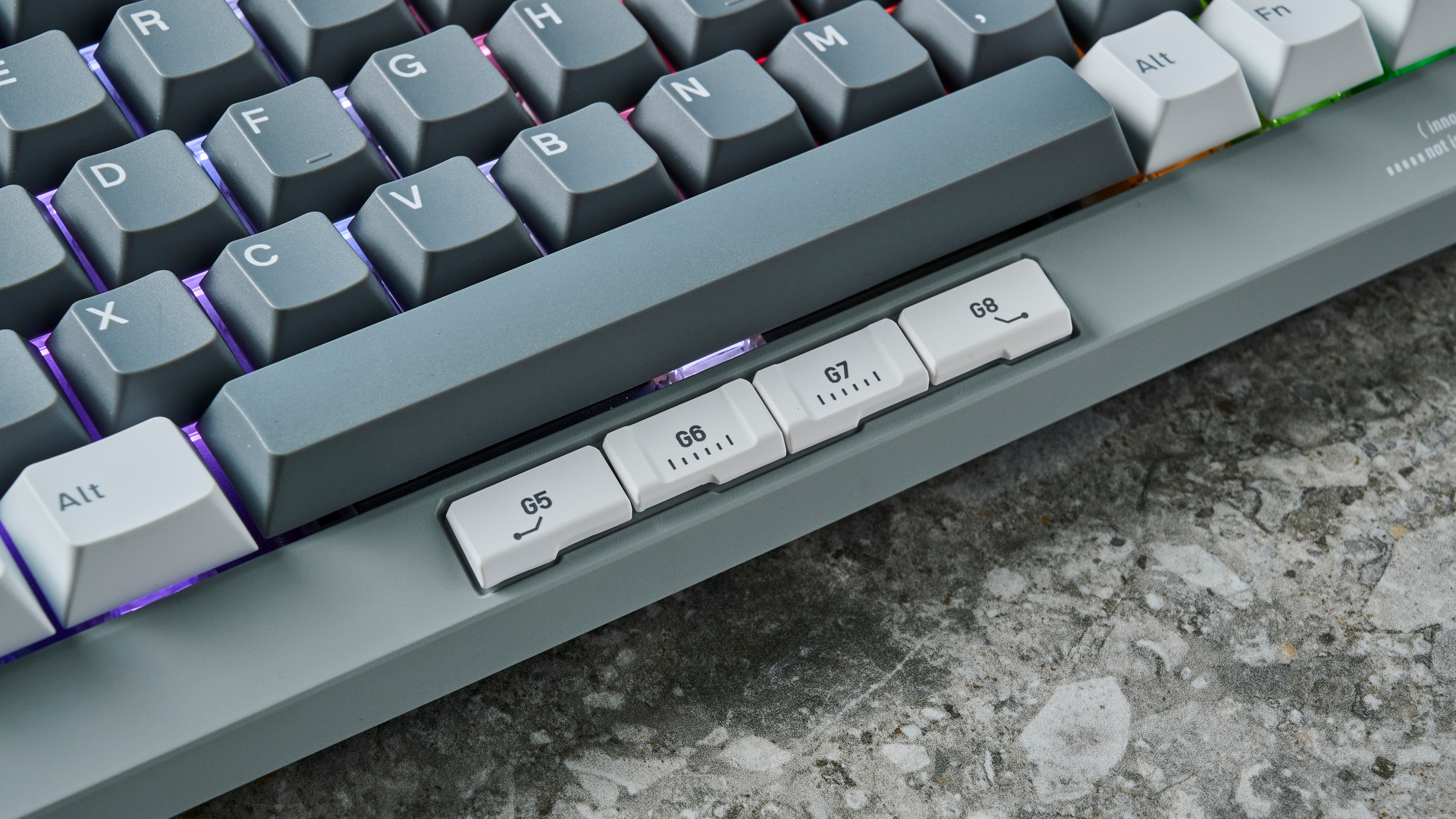
More functionality is more functionality, whether most people can weaponize it or not.
Magnetic switches open up a formidable range of gaming features, with Gateron’s party trick being quad actuation points. That means you can assign up to four different commands per keystroke: two on the way down, two on the way back up. In one keystroke, you can walk, sprint, go prone, then jump, all depending on your timing and input force.
Many top-tier boards like the Corsair K70 Max and SteelSeries Apex Pro only offer dual actuation points. In reality, most people won’t need nor want four actuation points: it can be fiddly and more of a hindrance than a help. But more functionality is more functionality, whether most people can weaponize it or not.
The most useful of the Field75 HE’s magnetic features is rapid trigger: the zeitgeist’s must-have. This resets keys instantly when released, so no waiting for the key to cycle back and actuate again. This enables rapid inputs in quick succession for more responsive gameplay.
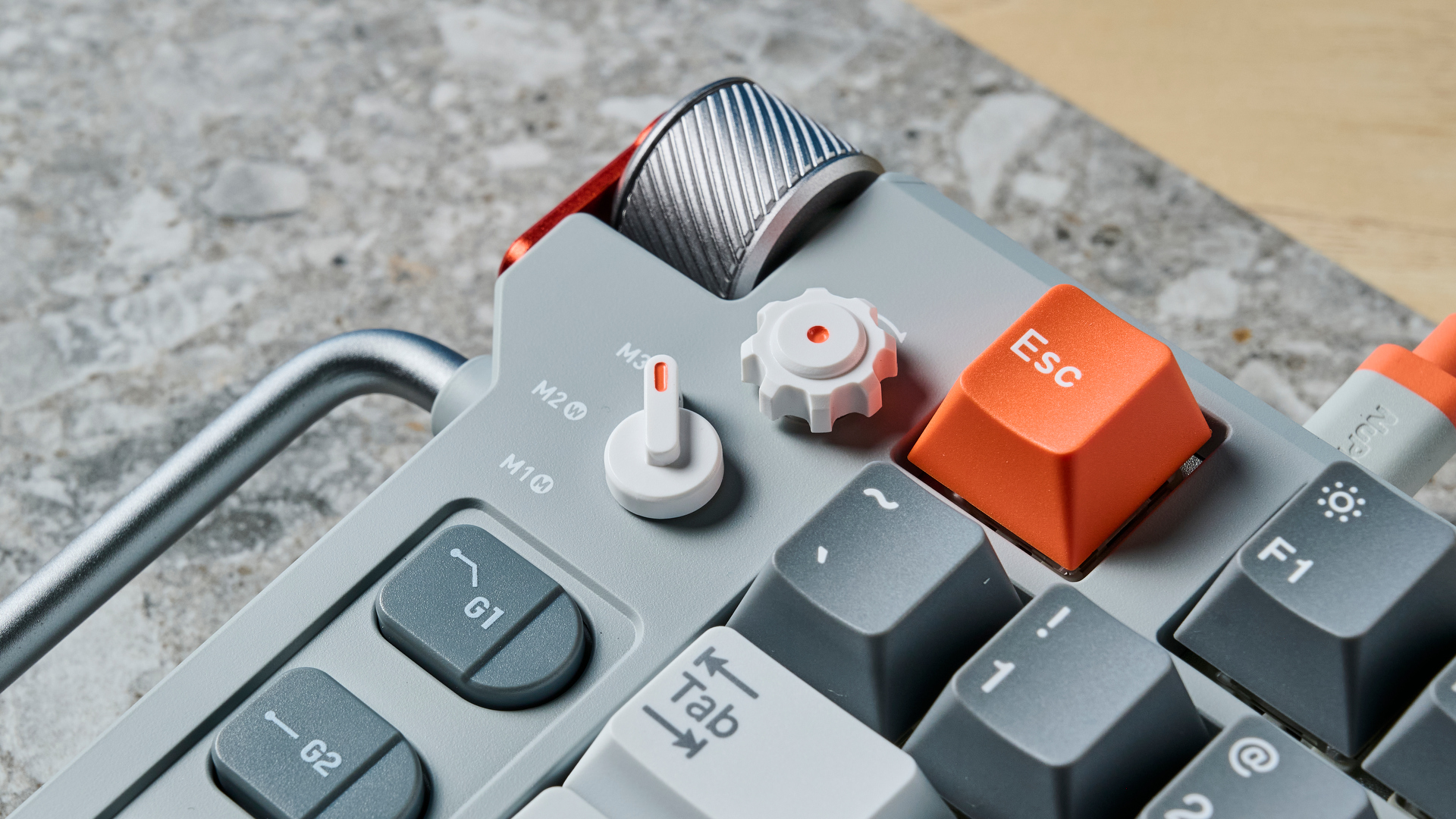
The Field75 HE also features the last key priority SOCD resolution (A.K.A ‘Snap Tap’). This lets a second switch actuate while another is already engaged, making counter-strafing much easier. I had issues updating my board’s pre-production firmware, which meant that SOCD resolution options were not available (NuPhy supplied a solution that didn’t work). However, Field75 HE units will now be shipping with updated firmware, giving users access to ‘Snap Tap.’ I’ve used this feature on the NuPhy Air60 HE (running similar Hall Effect switches and firmware), and it works well, allowing you to easily counter strafe without accuracy penalties. Be warned, though, that Valve can detect last key prioritization and players can be kicked or banned from certain games, like Counter-Strike 2.
The board also features some very useful onboard controls, including a mode switch to toggle between custom profiles. There are also eight re-bindable quick-access function buttons along the left-hand side and bottom of the board, which are super handy for assigning to commonly used functions.
8,000Hz polling
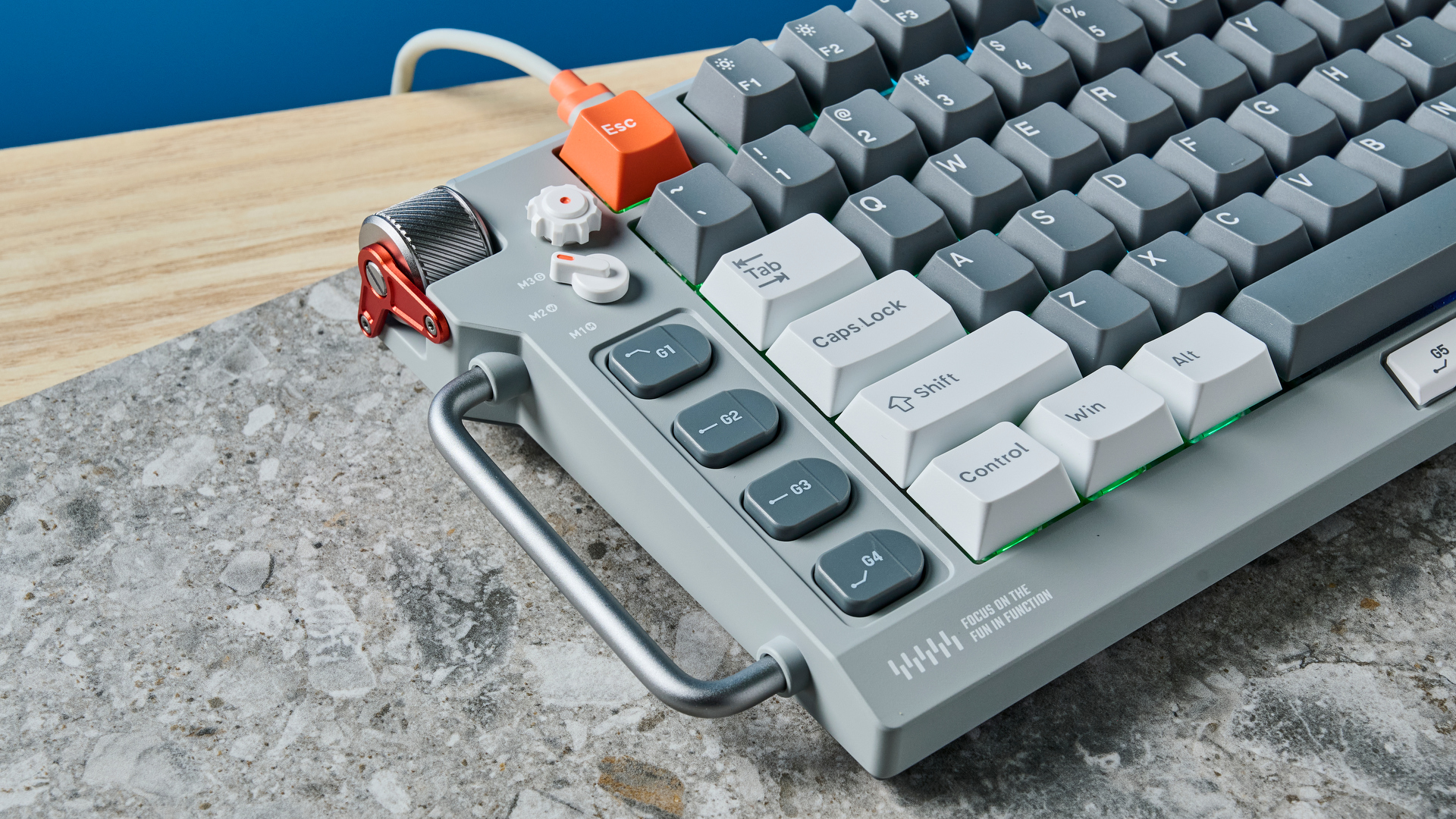
The Field75 HE comes with up to 8,000Hz polling, not that you really need to care. Polling rates have become a spec-swinging contest these days and NuPhy has decided to join in. If your keystroke falls between two scans, an 8K board will poll again (and therefore pick up the input) faster than a 1K board, but the time difference will be imperceptible — we’re still talking 1,000 scans per second here. 1K is still fast enough for many esports players, so go figure.
8K polling may seriously hog system resources, too, although the Field75 HE allows you to choose between 1K, 2K, 4K and 8K rates to help you tailor polling to your needs.
Highly customizable
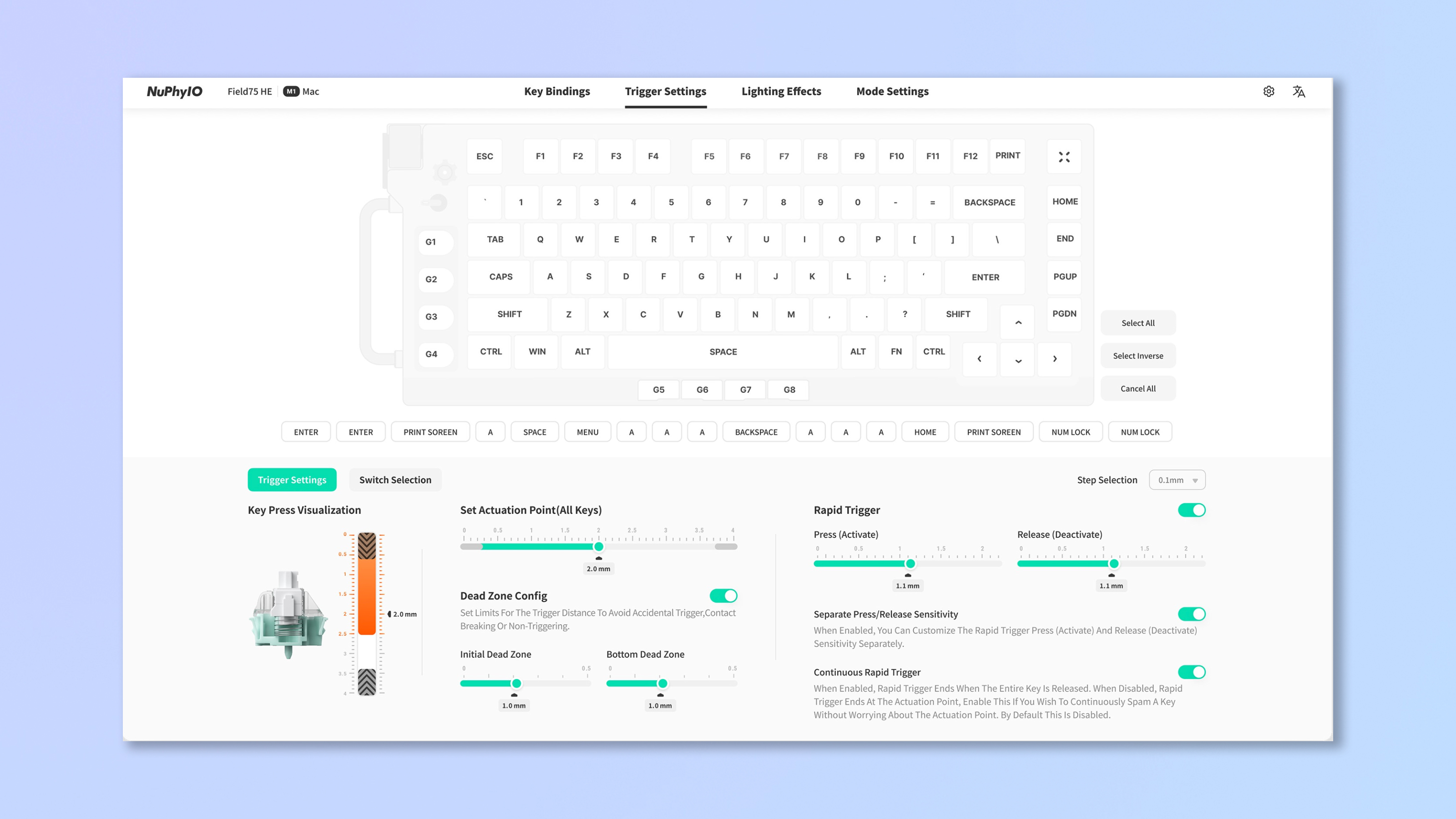
The Field75 HE’s software is managed and customized through NuPhy.io, a browser-based firmware management tool. It doesn’t quite match the caliber of the fantastic Keychron Launcher, but nevertheless offers lots of tweaking and remapping options, including the behavior of the magnetic switches.
It’s a little disappointing not to see the Field75 HE running open source QMK firmware, but NuPhy’s implementation of QMK has been somewhat janky in boards like the NuPhy Air75 V2 and NuPhy Gem80, so I’m just happy to see firmware that works, especially as this board is so reliant on software.
There are plenty of onboard controls to customize the board on the fly, too. There’s a cog dial for lighting, a mode switch for OS and profile switching and a cool volume jog wheel on the side.
Well-designed
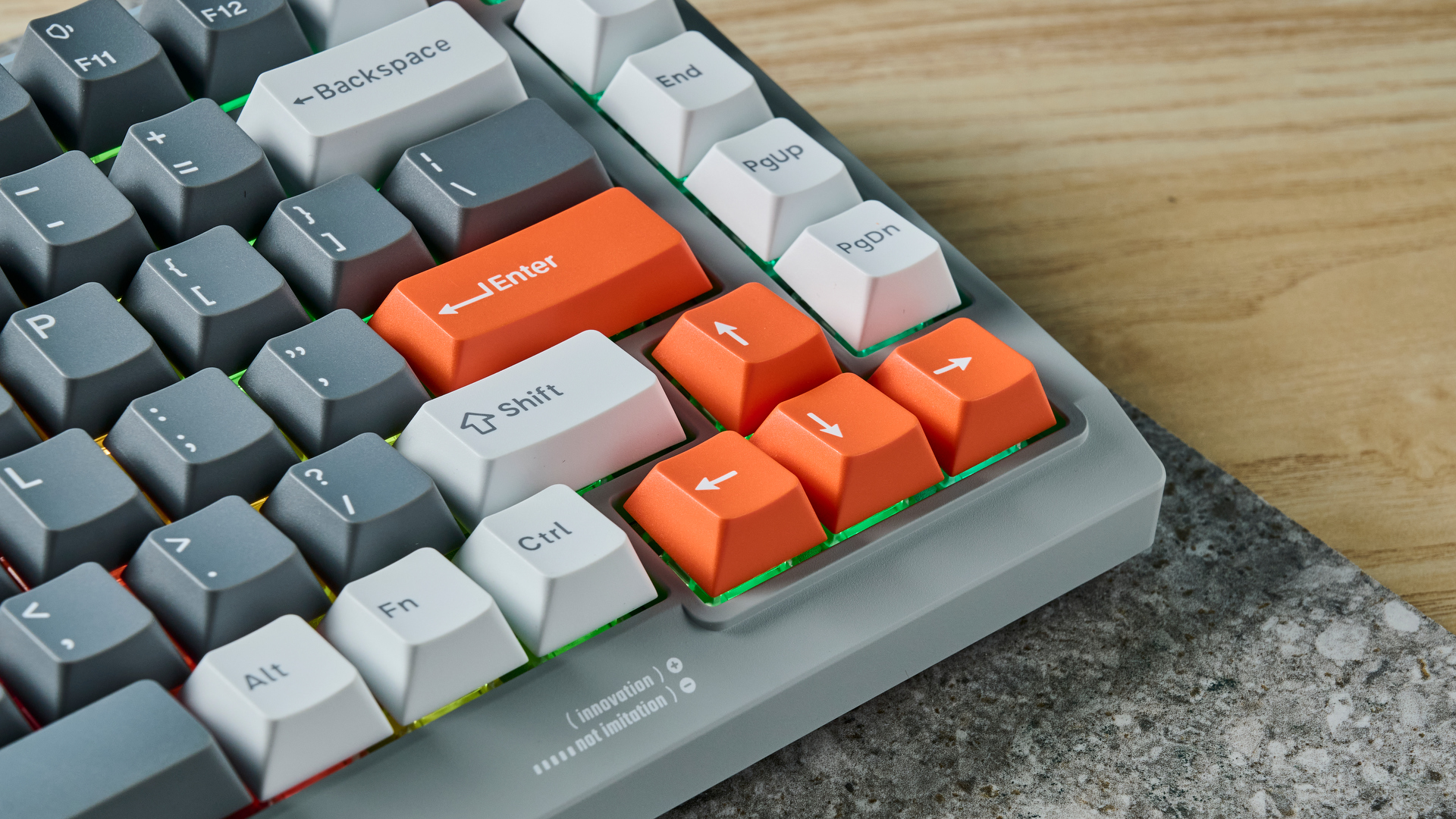
NuPhy’s boards are always quirky. Nothing ever quite as outlandish as the Redragon K686 Pro SE waifu board, but they’re almost always striking and cute. The Field75 HE drops the cutesiness of other boards, although remains a looker with its 70s sci-fi gray, white and orange color scheme. It’s a little garish, and there are some slightly cringeworthy motivational phrases on the top case, plus a carry handle in case you want to carry your board to the LAN party like a grocery bag, but all this adds to the fun.
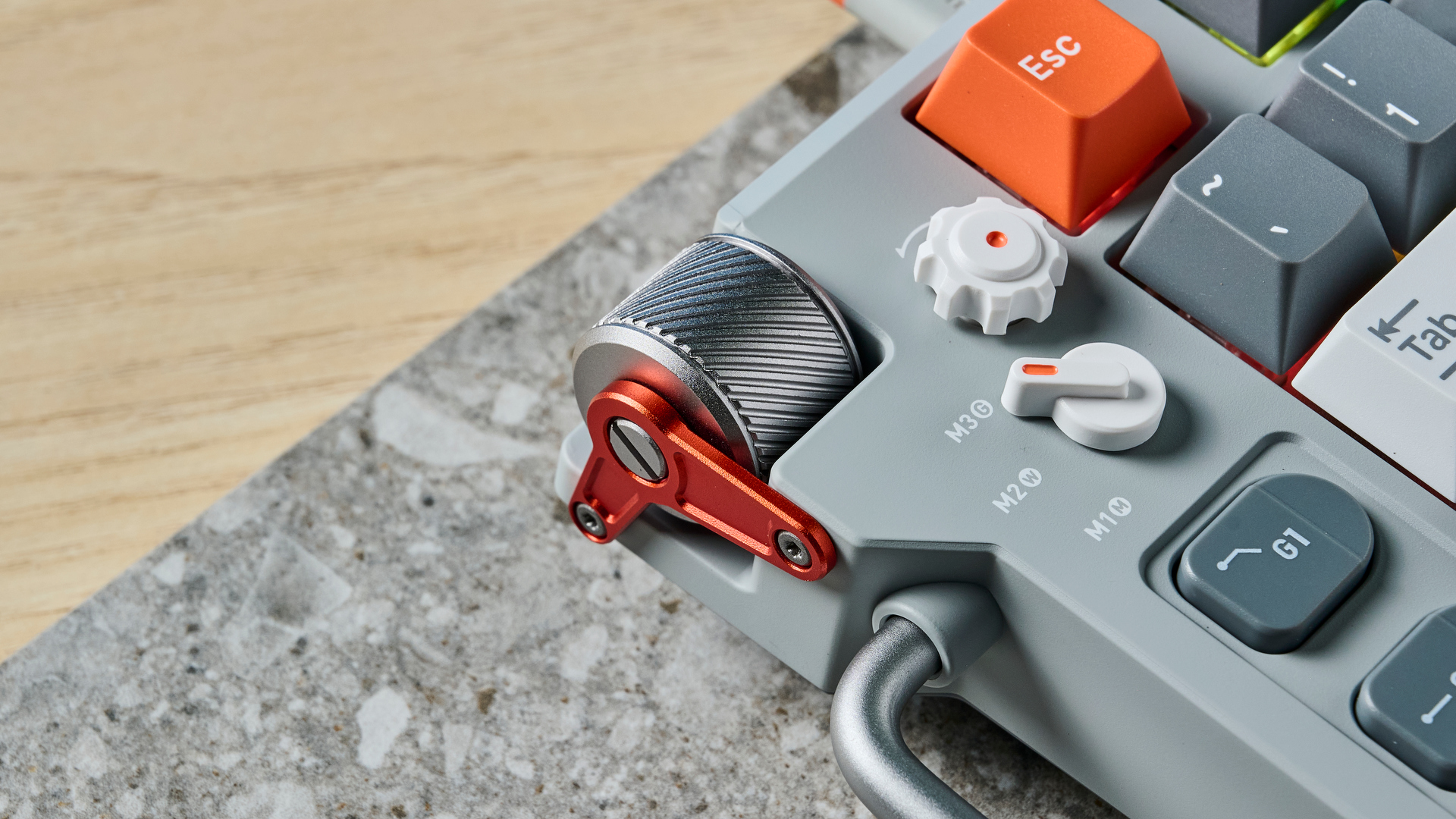
Sound-wise, the Field75 is fine. NuPhy has applied its vaunted acoustic damping to decent effect, resulting in an echo-free sound. This is impressive given NuPhy has done away with their usual soft gasket mount PCB damping, in favor of firmer top mounting spread throughout the board to reduce PCB flex and therefore secondary switch travel (this makes a lot of sense when producing a board whose actuation scales down to 0.1mm intervals). However, the Gateron White switches aren’t particularly great to listen to. For a nicer-sounding magnetic keyboard, I’d recommend the Keychron Q1 HE, with its more stable and acoustically-minded Gateron Dual-rail switches.
Fine for Productivity
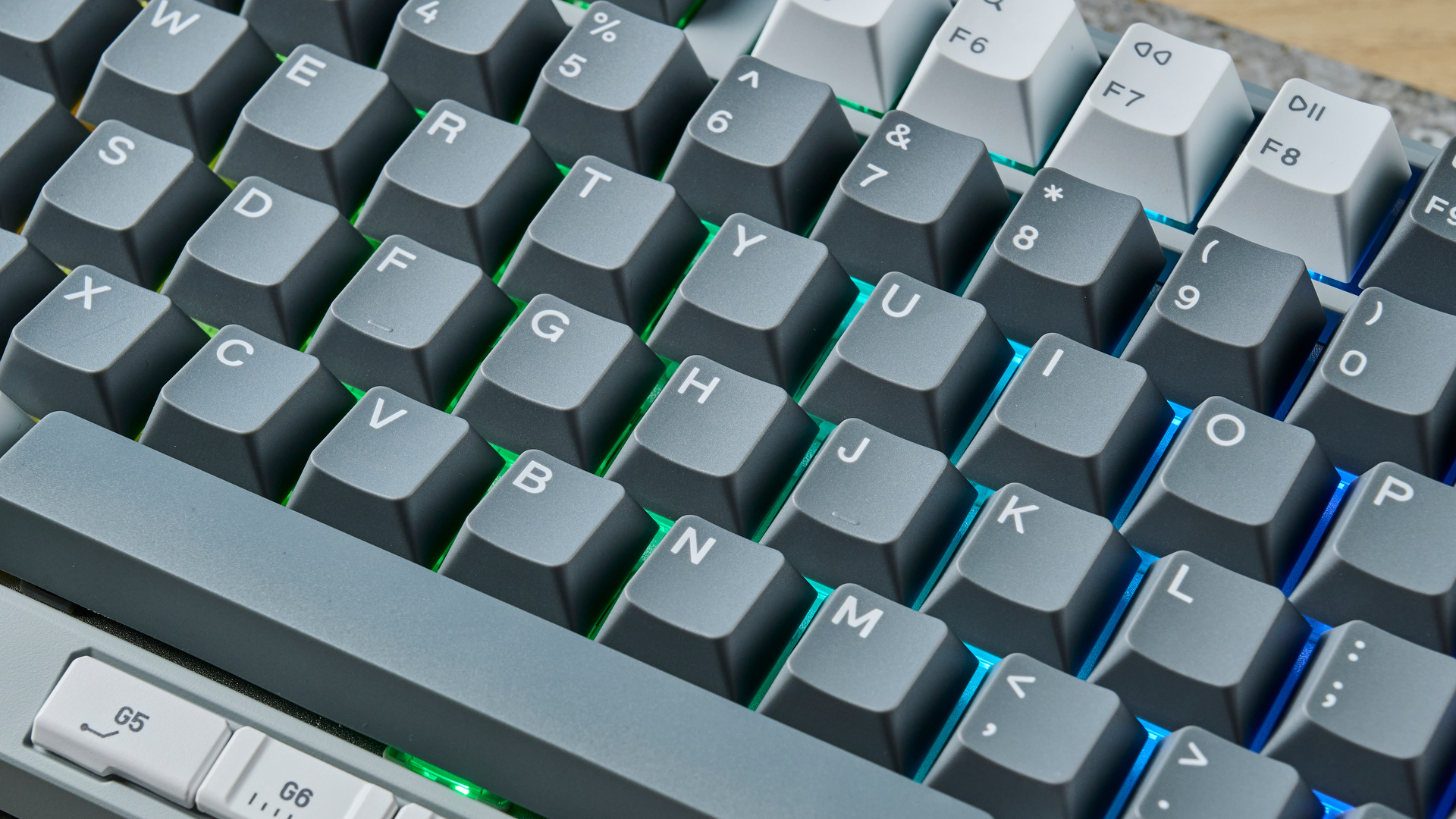
Although the Field75 HE is a gaming board, it’s nice to see NuPhy hasn’t forgotten its productivity roots. The inclusion of a baked-in macOS profile and spare Mac keycaps is something I never expected to see from a gaming board, but the market is not binary and there are plenty of people like me who use both, so I appreciate that NuPhy doesn’t forget it.
The Field75 HE’s double-shot PBT keycaps employ the Cherry profile commonly favored by gamers due to its moderately low profile. Cherry profile isn’t my favorite for typing — that honor goes to NuPhy’s mSA profile found on the NuPhy Halo75 V2 — but it’s fine. At longer actuations, I was able to hit fast typing speeds with accuracy comparable to that on the Keychron K2 HE.
| Keyboard | Typing speed (words per minute) | Typing accuracy |
|---|---|---|
| NuPhy Field75 HE (2.6mm actuation) | 101 | 90.20% |
| Keychron K2 HE (2.6mm actuation) | 106 | 93.97% |
| NuPhy Nos75 | 95 | 81.79% |
| Keychron Q1 Pro | 99 | 82.91% |
| Lofree Flow84 | 96 | 87.55% |
| Keychron Q3 Max | 94 | 81.80% |
| Epomaker DynaTab75 | 95 | 92.75% |
| NuPhy Gem80 | 96 | 92.82% |
| Pete's rolling averages (all keyboards) | 93.32 | 87.83% |
However, the Cherry profile caps and Gateron white switches aren’t as comfortable for typing as the OSA keycaps and more stable Dual-rail switches found on the K2 HE Special Edition or Keychron Q1 HE. Nor is the top mounted PCB design as comfortable as the springier gasket mounts found in most productivity keyboards. If typing is as big a part of your keyboard usage as gaming, I’d opt for one of the Keychron boards instead.
NuPhy Field75 HE review: The downs
The Field75 HE is a very strong Hall Effect gaming keyboard. There are only a few downsides, but they may give you pause for thought given rival HE boards bring similar features with fewer cons.
Limited switch choices (for now)
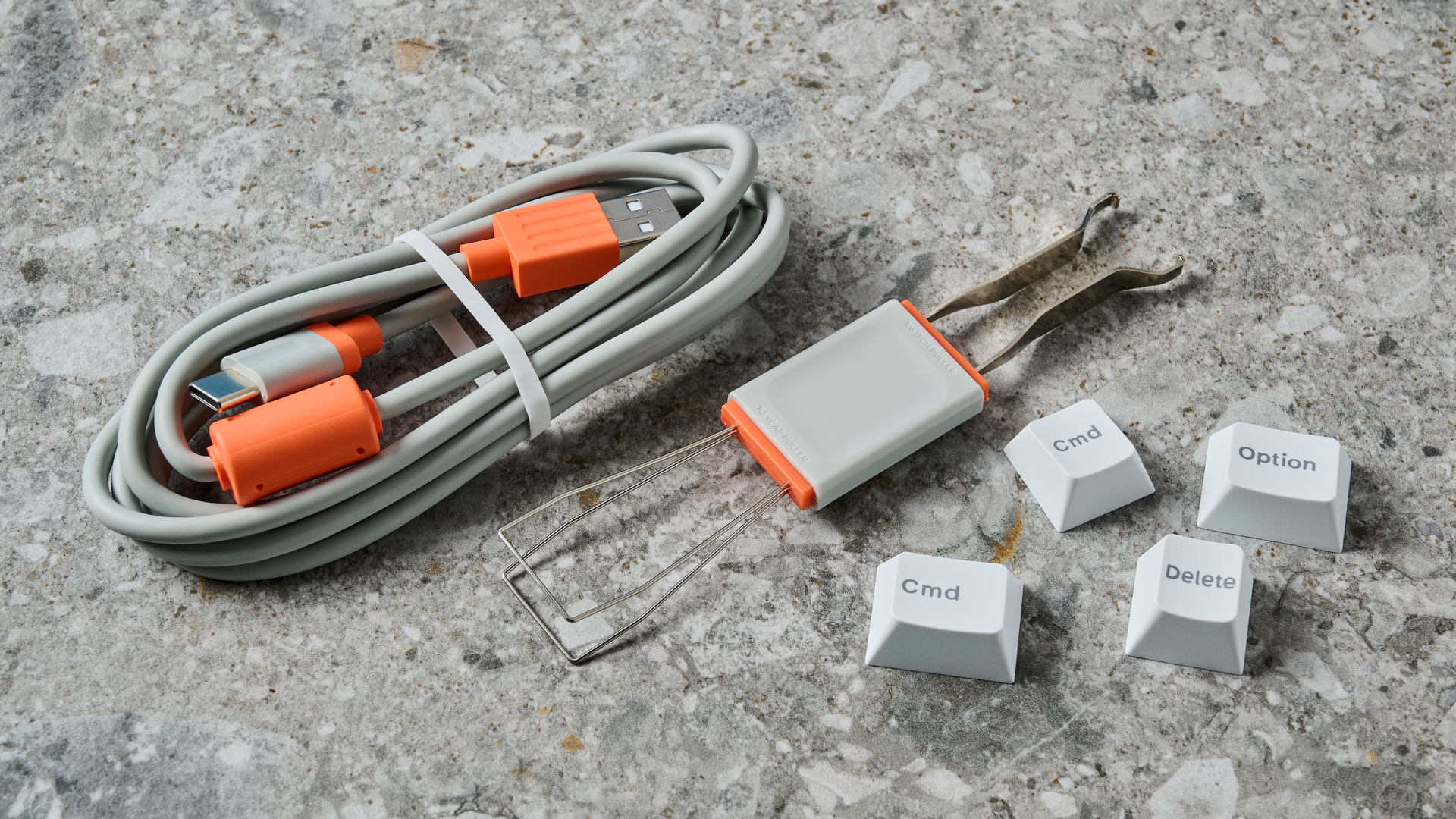
As we’ve said about the other Hall Effect custom boards we’ve recently tested, magnetic switches are still in their infancy, so the variety on offer for hot swap fans isn’t massive. This is by no means a large con: a major part of why you’d buy this board is for its switches, so the variety of compatible switches isn’t a big issue.
Wired-only
Something that is rather frustrating, however, is that the Field75 HE is wired-only despite having a carry handle to suggest it’s (at least in part) intended to be portable. Both the Q1 HE and K2 HE feature a 4,000mAh battery, allowing you to take them on the go, be that for gaming or work.
Pricier than other HE boards
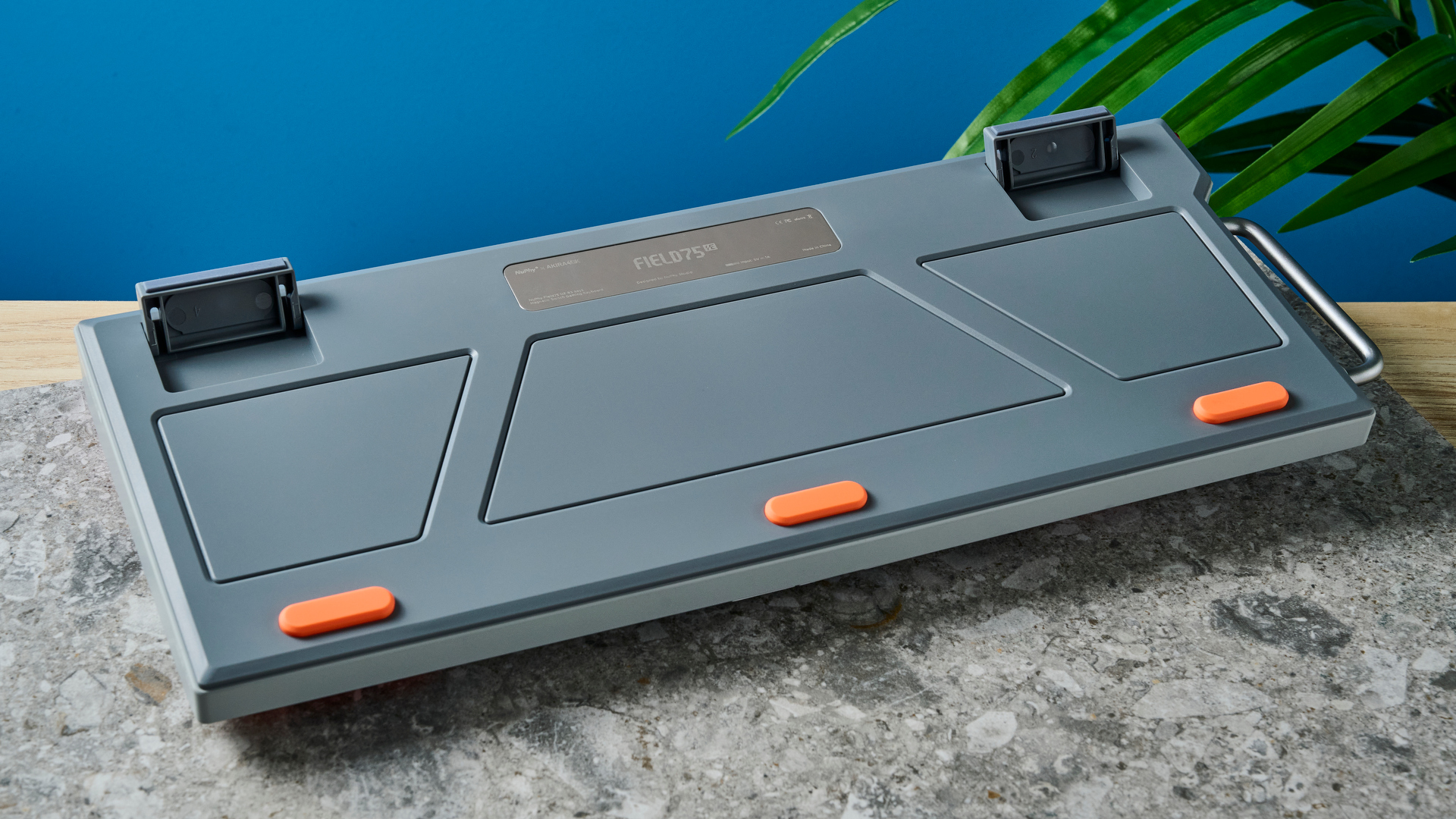
Given the amount of functionality it offers, the Field75 HE is pretty reasonably priced—$169 for the Gateron White switch version or $194 for the Jade switch model at Amazon. If you buyuy from NuPhy directly, those prices drop to $149 and $174 respectively.
At the upper end of the cost spectrum, the Field75 HE is still cheaper than the Keychron Q1 HE, which costs $239. However, it’s more expensive than the Keychron K2 HE, which starts at $130 for the standard edition and $140 for the Rosewood special edition. Except for 8K polling, the K2 HE provides the same level of gaming functionality as the Field75 HE. The K2 HE, however, is the better keyboard for productivity, is wireless, runs QMK and uses Keychron Launcher. It’s not that the Field75 HE is particularly bad value for money, it’s just that you can get more for your cash elsewhere.
NuPhy Field75 HE review: Verdict
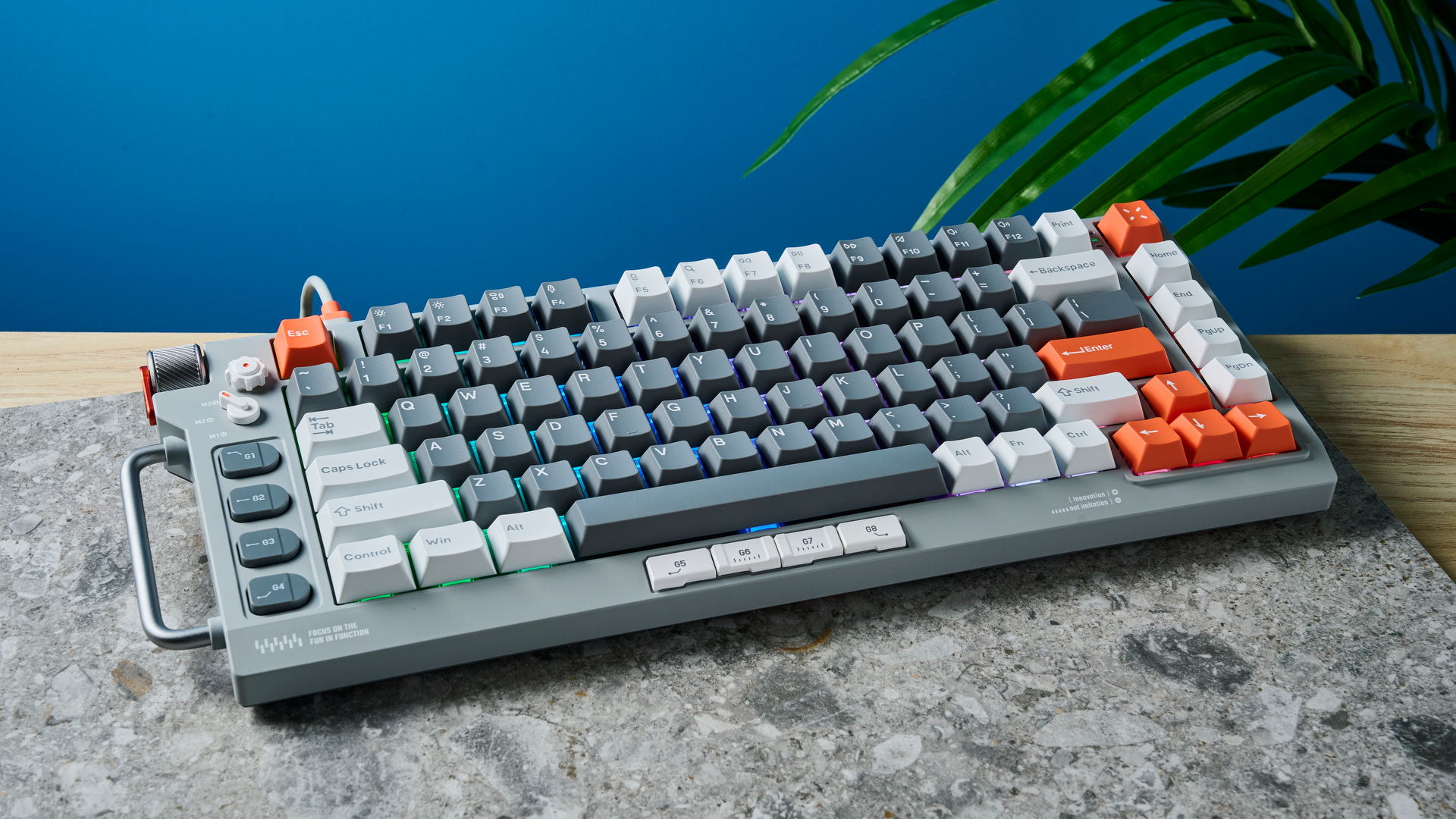
The NuPhy Field75 HE is a great gaming keyboard. It offers a slew of performance features to rival elite gaming keyboards from big-name manufacturers like Corsair, Razer, SteelSeries and Wooting. With adjustable actuation, rapid trigger, last input prioritization and 8,000Hz polling, the Field75 HE has everything you expect from an elite gaming keyboard in 2024. It’s also fairly priced compared to top-tier boards from big-name gaming brands and rival custom keyboard manufacturers, though it’s still not cheap.
If you don’t need 8,000Hz polling (and trust me, you probably don’t), you can save some cash and get just as many gaming features with the Keychron K2 HE, which doubles up better than the Field75 HE as a productivity board — that’s why the K2 HE is our favorite gaming keyboard. However, the K2’s value for money doesn’t detract from the inherent strengths of the Field75 HE. So, if the NuPhy has tugged on your heartstrings then I’d say get it — you won’t be disappointed.

Peter is Reviews Editor at Tom's Guide. As a writer, he covers topics including tech, photography, gaming, hardware, motoring and food & drink. Outside of work, he's an avid photographer, specialising in architectural and portrait photography. When he's not snapping away on his beloved Fujifilm camera, he can usually be found telling everyone about his greyhounds, riding his motorcycle, squeezing as many FPS as possible out of PC games, and perfecting his espresso shots.
